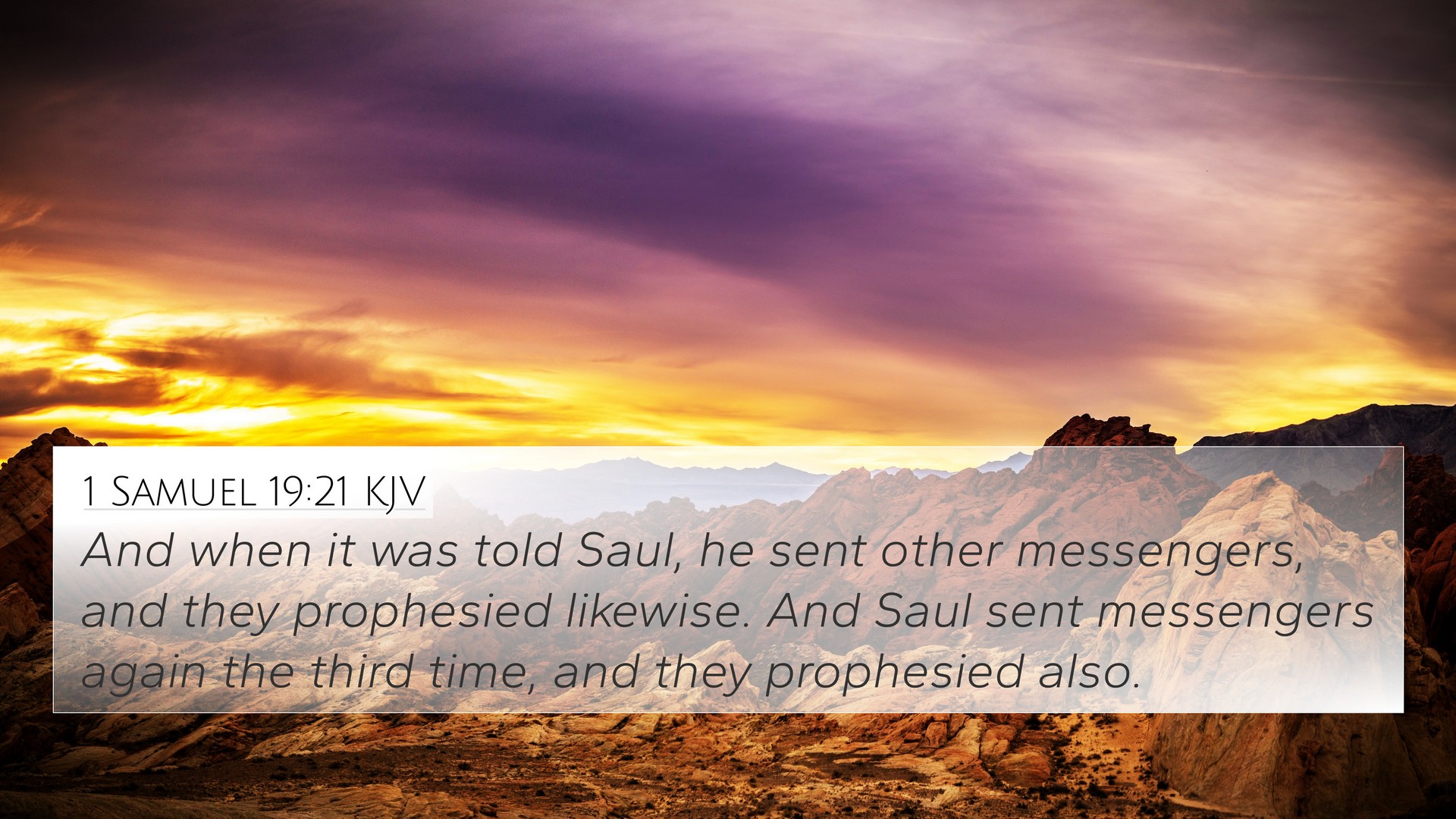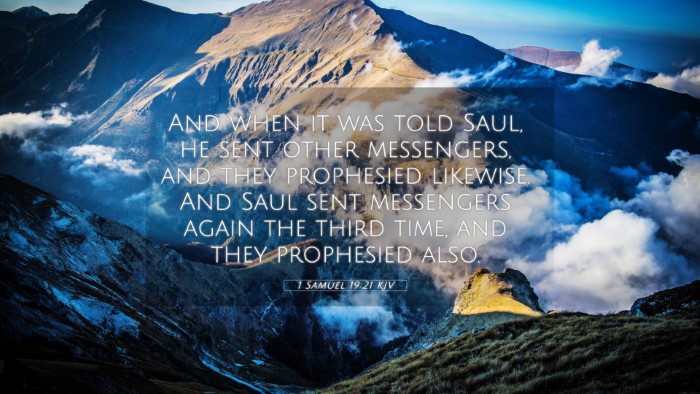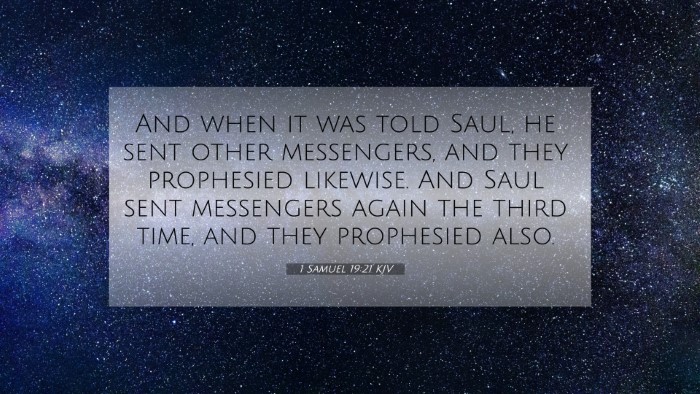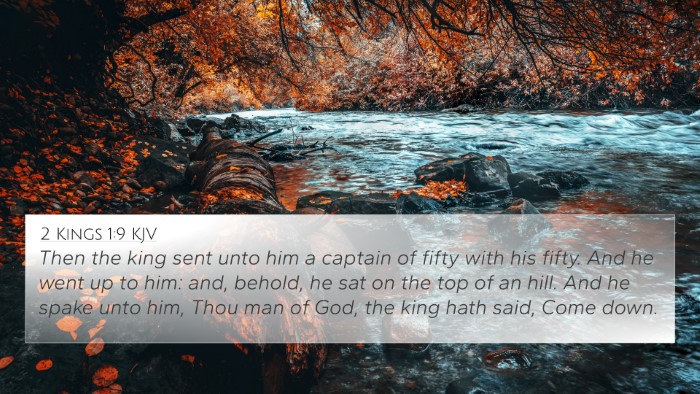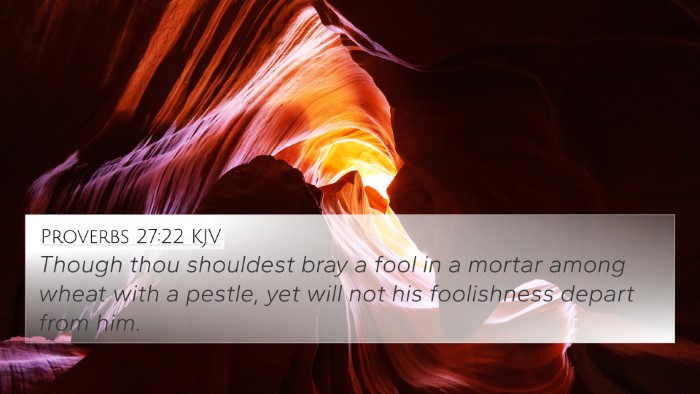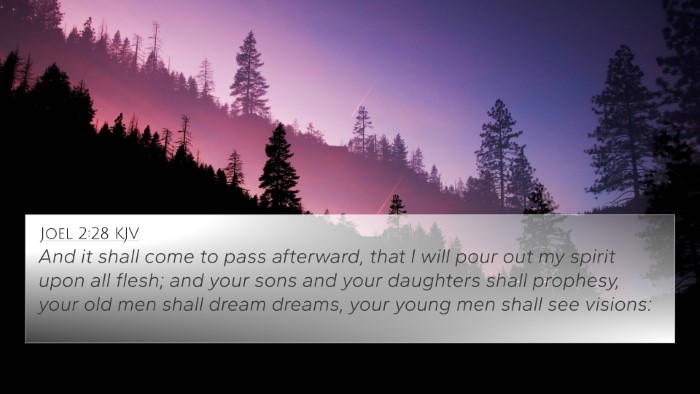1 Samuel 19:21 Overview
In 1 Samuel 19:21, the verse conveys the unfolding scenario of Saul's attempts to capture David. This verse captures a significant moment demonstrating Saul's growing rage and desperation as he pursues David. The context involves the prophetic and spiritual dynamics present in Israel, and it highlights the collision between divine plans and human actions.
Verse Interpretation
Different public domain commentaries offer insights into the meaning of this verse. Matthew Henry, Albert Barnes, and Adam Clarke emphasize key thematic elements such as the essence of divine protection, the folly of human ambition, and the uponcoming tensions of leadership within Israel.
- Matthew Henry's Commentary:
Henry discusses the implications of King Saul's pursuit of David, emphasizing how authority can become corrupted by jealousy and fear. He notes that the prophetic state of David serves as a divine protection against Saul's ambitions. The verse serves to illustrate the broader conflict between the anointed future king and the current, yet flawed, king.
- Albert Barnes' Notes:
Barnes reflects on the reactions of the prophets and their relationship with God's anointed. He points out that Saul’s encounter with the prophets in pursuit of David had a deeper, spiritual significance showcasing God's power and the futility of human plans against divine will.
- Adam Clarke's Commentary:
Clarke further elaborates that Saul’s ignorance of the divine workings illustrates a common theme in the Scriptures where the flesh and its ambitions stand in stark contrast to the unseen spiritual realities shaping the course of human events.
Thematic Bible Verse Connections
This verse connects to key Biblical themes, including:
- Divine Protection: The protection of David by God during his trials parallels themes found throughout the Bible where God intervenes on behalf of the innocent.
- Jealousy and Rivalry: The issue of jealousy prevalent in Saul’s heart echoes similar narratives found in the story of Cain and Abel (Genesis 4:1-16).
- Prophetic Authority: The involving of prophets in the story illustrates the role of prophecy in guiding leaders - connecting to 2 Kings 2:3.
- Leadership Struggles: The competition for leadership resonates with other Biblical examples, notably between David and Absalom (2 Samuel 15).
Cross-References for Further Study
Several verses that offer a deeper understanding through cross-referencing in the Bible include:
- 1 Samuel 16:13 - God anoints David, illustrating divine choice.
- 1 Samuel 18:9 - Saul’s jealousy towards David begins.
- 1 Samuel 19:10 - Describes further attempts by Saul to kill David.
- Psalm 59 - David's plea for deliverance from his enemies highlights the context of his persecution.
- Luke 6:26 - Jesus warns about false accusations and the rejection of the righteous.
- Hebrews 11:32-34 - Explains the faith of David, linking to David's trials.
- James 4:2 - Discusses the roots of jealousy and conflict among men.
Utilizing Bible Cross-References
These connections highlight a method of deepening one's understanding through cross-referencing Biblical texts. Utilizing tools such as a Bible concordance or a Bible cross-reference guide allows one to navigate through similar themes and narratives effectively. It can reveal connections not just within the Old Testament but also between the New Testament, showcasing how the scripture dialogues with itself.
Conclusion
The events described in 1 Samuel 19:21 serve as a vivid reminder of the complexities of divine and earthly power struggles. By exploring its connections through thematic Bible verse connections and a comprehensive examination of cross-referenced verses, one can draw deeper theological insights and understanding from this pivotal moment in the story of David and Saul.
